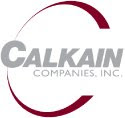
According to a new study from the Association of Foreign Investors in Real Estate, Washington D.C. is the top U.S. city for investment. A major reason cited is the “government activism we have now”, which is spurring job growth and attracting residents. The survey also revealed other positive indicators, such as two-thirds of respondents planning on boosting their investment in U.S. real estate this year as compared to last and half expecting U.S. commercial real estate to recover by or before the fourth quarter 2010.
For the D.C. net lease sector, this survey can be seen as a portent of good things ahead. Should the some of predictions of the survey pan out and both investment in the D.C. area rise and commercial real estate see a recovery by the end of the year, it would certainly be a better turnout than many would have predicted. While it has been widely reported that D.C. is doing better than nearly all other U.S. metropolitan areas, it is refreshing to see this fact backed up by those with foreign perspectives.
Net lease properties have already been on many peoples watch lists due to their bond like structure and relative security & stability. When the economy picks up and money starts to flow again, there is a reasonable school of thought saying it will first flow into secure investments rather than the riskier types seen in years past. Net leases fit this bill perfectly.
What the Association of Foreign Investors in Real Estate Survey is essentially saying is that commercial real estate recovery has a reasonable chance to be around the corner and one of the main centers of growth will be Washington D.C. Though this is by no means certain (note the survey itself is split 50-50 on recovery in 2010), if it does prove to be true, it will be quite the year for our nations capitol. However, whether widespread commercial real estate recovery does or does not arrive in 2010, net leases in the D.C. area should see a positive year regardless of the encircling climate, due to their inherent demand and the city’s growth.






